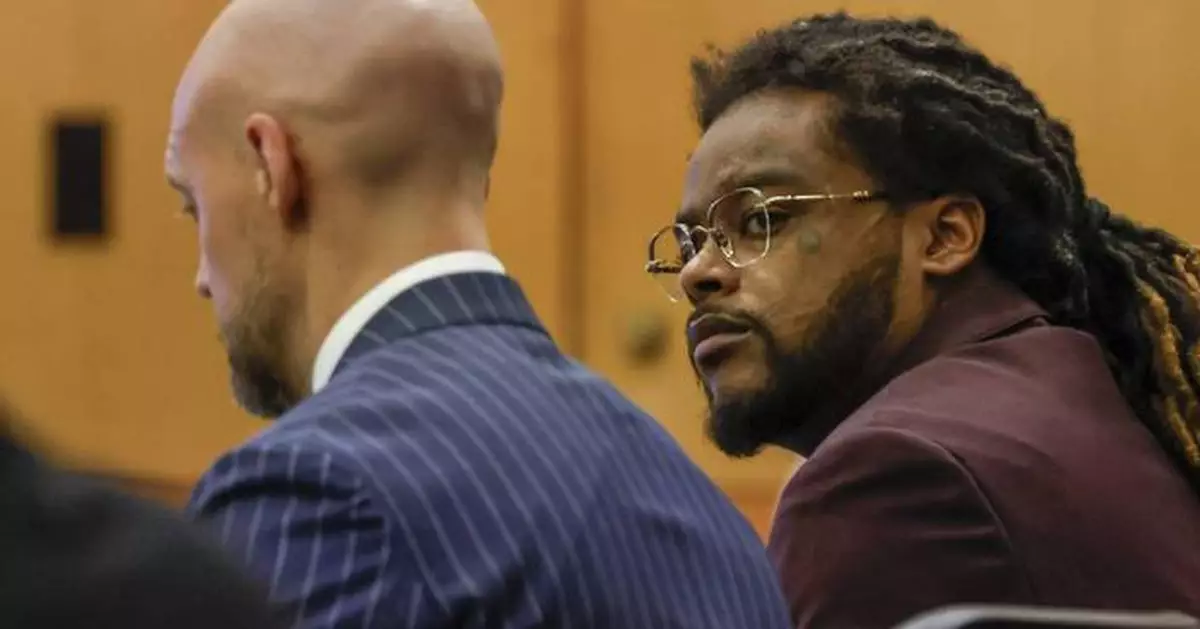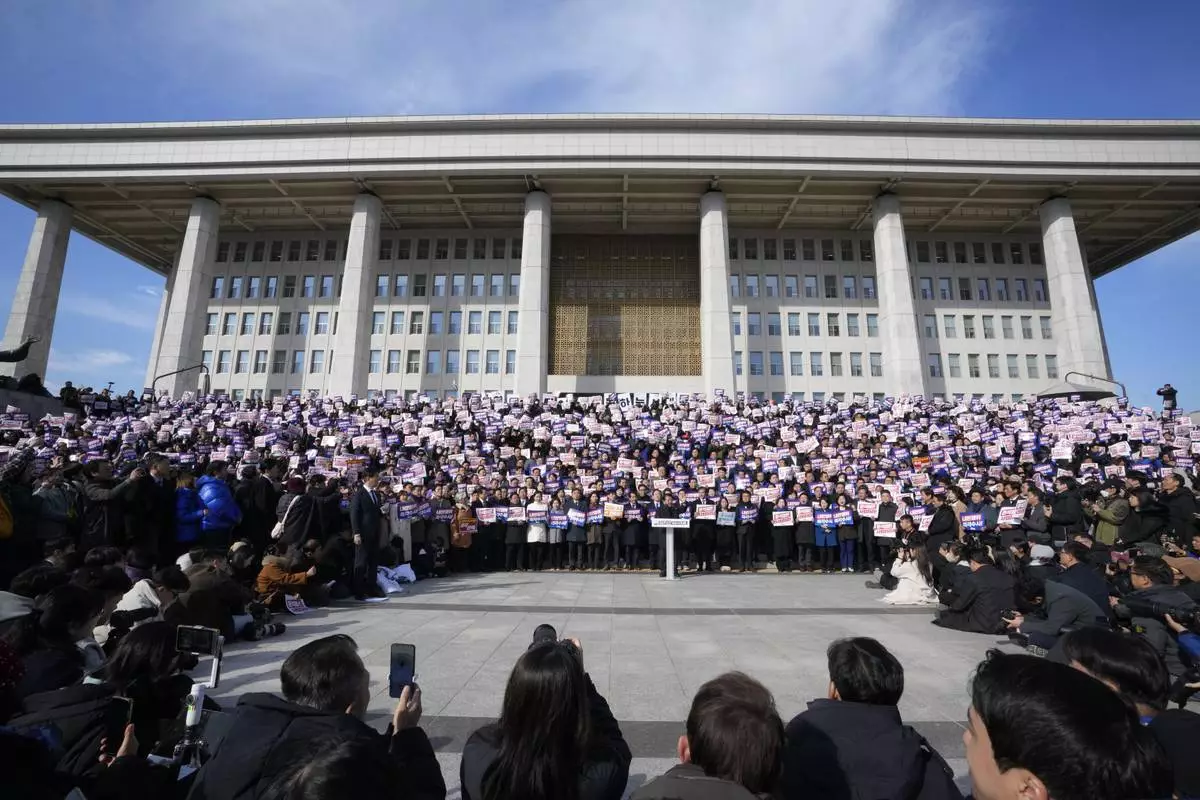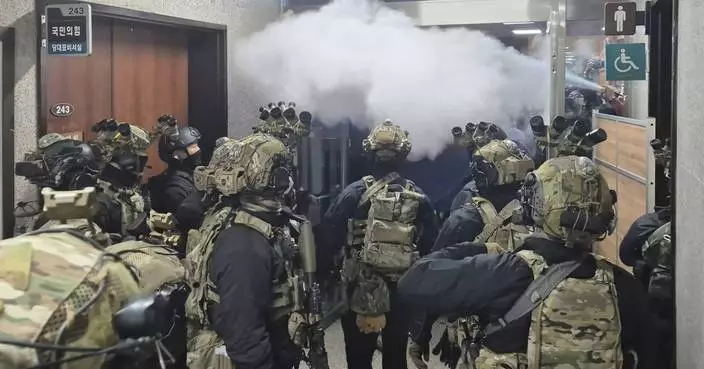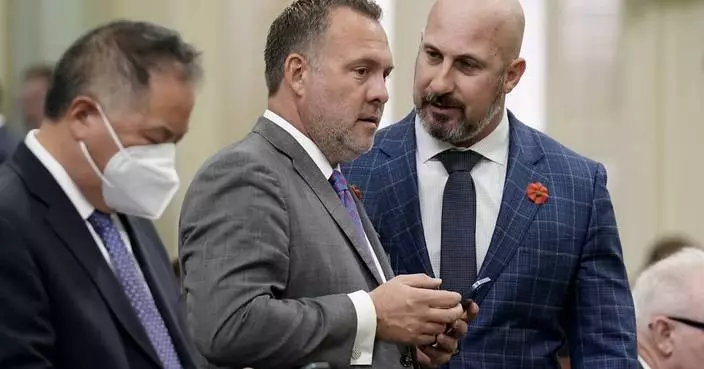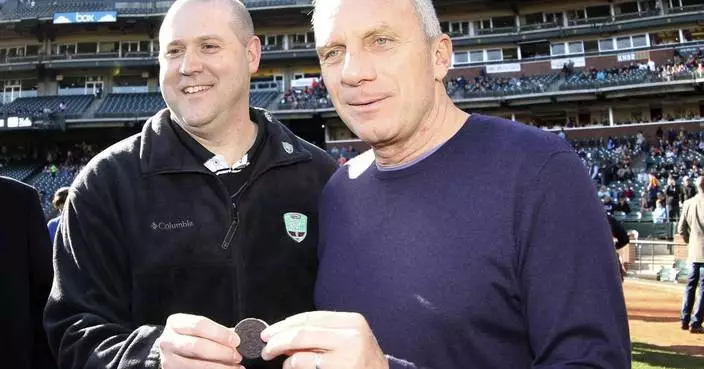ATLANTA (AP) — The long-running gang and racketeering trial that led Atlanta rapper Young Thug to plead guilty in October ended on Tuesday with the last two defendants found not guilty of racketeering, murder and gang-related charges.
Deamonte Kendrick, who raps as Yak Gotti, was acquitted of all charges and Shannon Stillwell was found guilty only of gun possession. The verdicts came nearly two years after jury selection began and a year after opening statements in a trial plagued with problems.
The original, sweeping indictment used song lyrics and social media posts as evidence and charged 28 people with conspiring to violate Georgia’s Racketeer Influenced and Corrupt Organizations Act. Young Thug, a Grammy-winning artist whose real name is Jeffery Williams, was set free on probation after he pleaded guilty in October to gang, drug and gun charges.
Kendrick and Stillwell were charged in a 2015 drive-by shooting outside an Atlanta barbershop that killed Donovan Thomas Jr., also known as “Big Nut,” who prosecutors said was in a rival gang. Stillwell also was charged with fatally shooting Shymel Drinks at a red light in 2022, allegedly in retaliation for the killings days earlier of two associates in a gang known as YSL, which prosecutors said was co-founded by Young Thug.
Stillwell was sentenced to the 10-year maximum for possessing a firearm as a convicted felon previously convicted of a felony involving a gun, with credit for the two years he already served and the balance to be served on probation.
Nine of the defendants, including the rapper Gunna, accepted plea deals before the trial began, and four more pleaded guilty during the trial, in October. Charges against 12 others remain pending. Prosecutors dropped charges against one defendant after he was convicted of murder in an unrelated case. That left Kendrick and Stillwell, both of whom were stabbed while in jail — Stillwell last year and Kendrick on Sunday.
Tuesday's verdicts were a major setback for Fulton County District Attorney Fani Willis. Critics had criticized her use of the state’s anti-racketeering law, which she also used to bring charges against President-elect Donald Trump for his attempts to overturn the 2020 election.
“We always respect the verdict of a jury,” said Jeff DiSantis, a spokesperson for Willis.
Defense attorneys said the state relied on faulty evidence — song lyrics, cherry-picked social media posts and unreliable witness testimony — to create a misleading narrative about young men who turned to music to escape economic hardship and difficult pasts.
The jury's decision left Tasha Kendrick, Kendrick's mom, in tears.
“I’m just thankful for a lot of things right now,” she said. “My emotions are all over the place right now."
Prosecutors said Williams and two others founded Young Slime Life in association with the national Bloods gang in 2012. The 33-year-old artist also has a record label called Young Stoner Life. Kendrick is featured on two of the most popular songs from the label’s compilation album Slime Language 2, “Take It to Trial” and “Slatty,” as well as Young Thug’s “Slime Sh-t," which prosecutors presented as evidence.
Williams entered a risky “blind” plea — meaning he pleaded guilty without an agreement on his sentence — in October. Williams’ lawyer said he felt like they were winning, but the rapper complained that sitting in court felt like “hell” and wanted to go home to his family. Judge Paige Reese Whitaker let him out of jail on probation with tight restrictions, including a 10-year ban from metro Atlanta except for certain occasions.
The trial shook Atlanta’s rap scene. Williams grew up in a violent Atlanta housing project and became a highly successful artist who added his own melodic twist to the modern Southern trap sound he helped popularize.
Fulton County Superior Court Judge Ural Glanville was removed from the case in July after he met with prosecutors and a state witness without defense attorneys present. Kendrick’s attorney Doug Weinstein said defendants got a “fair trial” once Whitaker took over. Among other things, she reprimanded the prosecution for being disorganized and not sharing evidence.
During closings, Stillwell’s defense attorney Max Schardt sought to cast doubts on the gang investigators and other state witnesses. Several alleged YSL members testified they had lied to police to stay out of prison. Schardt said officers had threatened them with long prison sentences if they didn’t say the right thing.
Prosecutors said those witnesses were honest with police but lied on the stand, in front of the people they had “snitched” on. They said their statements were corroborated by other evidence such as songs and social media posts where they said defendants were “bragging about murder.”
Prosecutors threw together lyrics, social media posts and irrelevant evidence to “see what sticks,” Weinstein argued, but did not prove they were connected to a criminal enterprise.
While defendants did commit crimes in the past, Schardt said during closings, it was to make money for themselves in communities stripped of economic opportunity — not to advance a gang. And music let some of them move on.
“As a whole, we know the struggles that these communities have had,” Schardt said. “A sad, tacit acceptance that it’s either rap, prison or death.”
Both defense attorneys said Kendrick and Stillwell have other pending charges but hope to get them released from jail as soon as possible.
Stillwell is not “blind to the fact that he is getting a second chance at life," Schardt said.
Weinstein said Kendrick, who is close friends with Young Thug, was laser-focused on his music career before the state pulled him back into the criminal justice system.
“I’m so happy that he can kind of draw a line in the sand now,” Weinstein said. “All of this is behind him. He can get on with his life and not worry about this nonsense.”
Kramon is a corps member for The Associated Press/Report for America Statehouse News Initiative. Report for America is a nonprofit national service program that places journalists in local newsrooms to report on undercovered issues. Follow Kramon on X: @charlottekramon.
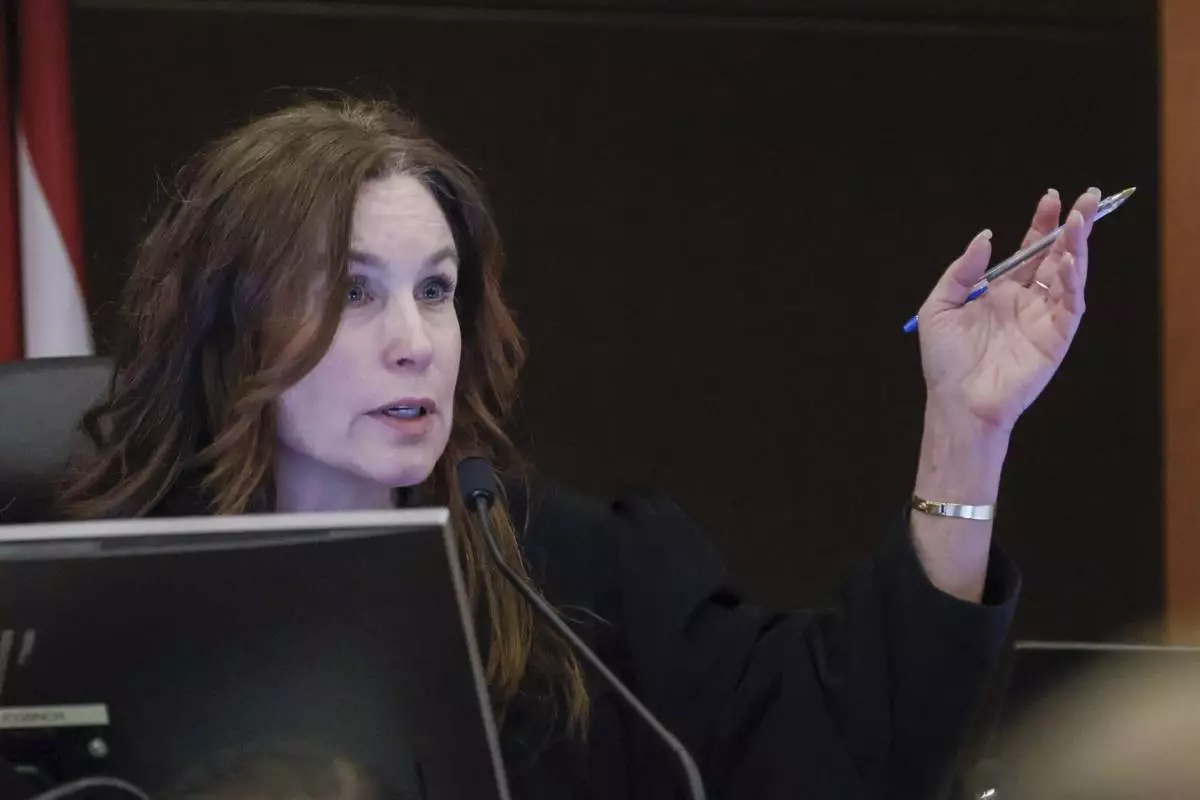
Fulton County Superior Court Judge Paige Reese Whitaker speaks with a prosecutor during the Young Thug trial at Fulton County Courthouse in Atlanta on Tuesday, Nov. 26, 2024. (Miguel Martinez/Atlanta Journal-Constitution via AP)
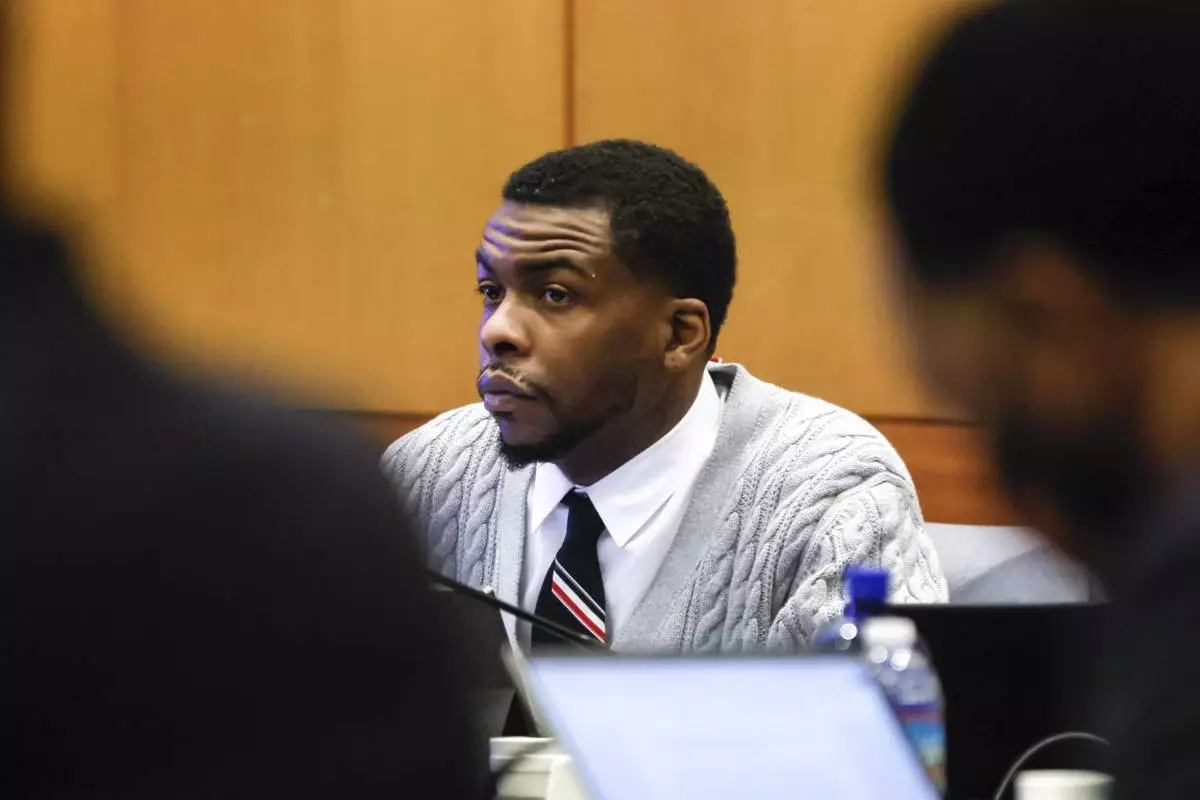
Defendant Deamonte Kendrick appears for the Young Thug trial at Fulton County Courthouse in Atlanta on Tuesday, Nov. 26, 2024. (Miguel Martinez/Atlanta Journal-Constitution via AP)
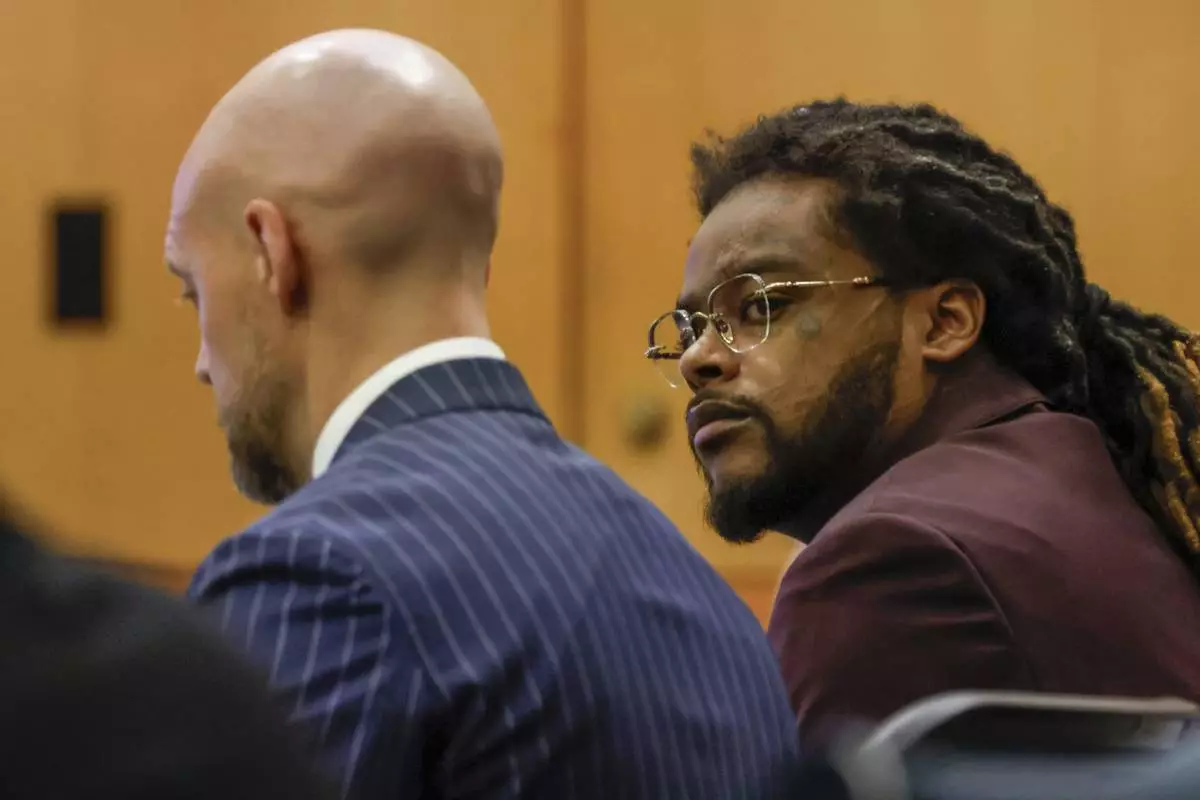
Shannon Stillwell, right, sits with his attorney, Max Schardt left, as he looks at the prosecutors during the Young Thug trial at Fulton County Courthouse in Atlanta on Tuesday, Nov. 26, 2024. (Miguel Martinez/Atlanta Journal-Constitution via AP)


